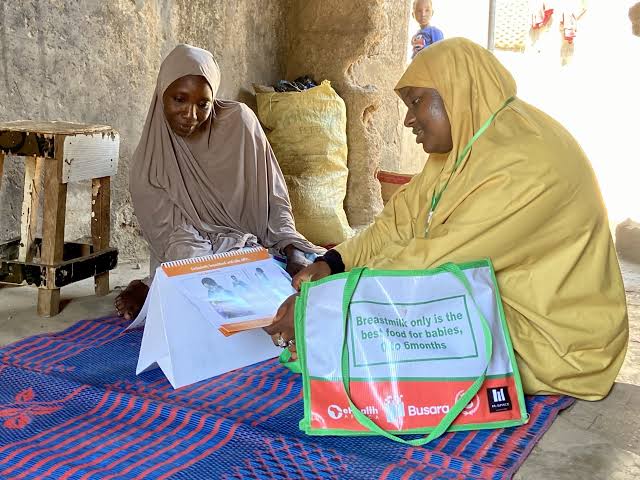The World Bank-supported Accelerating Nutrition in Nigeria (ANRiN) project has reached out to a total of 895,724 people with various nutrition and adolescent health services in Kaduna State in 2021.
The Project Coordinator, Dr Zainab Muhammad-Idris, made this known in an interview with the News Agency of Nigeria (NAN) in Kaduna on Monday.
Muhammad-Idris explained that ANRiN is a five-year project from 2018 to 2023, designed to increase utilisation of quality, cost-effective nutrition services for pregnant and lactating women, adolescent girls, and children under five years in the state.
According to her, the objective is to reduce chronic malnutrition, maternal and child mortality rates and, in the long run, increase school completion, performance, and improve labour force productivity.
She explained that the people were reached through eHealth and Society for Family Health (SFH), the two non-state actors contracted to deliver the services to the target groups at community level.
She said that SFH was responsible for Makarfi, Kubau, Kauru, Kudan, Zaria, Lere, Giwa, Igabi, Soba, Birnin Gwari and Sabon Gari local government areas (LGAs).
She added that eHealth, on the other hand, was responsible for Kaduna South, Kaduna North, Ikara, Chikun. Kajuru, Kachia and Jaba, Zangon Kataf, Jema’a, Sanga, Kagarko and Kaura LGAs.
She said that while SFH reached 458,502 target groups between August and December, eHealth has reached a total of 437,222, between October and December, amounting to a total of 895,724 people so far reached.
“Some of the services include deworming for children aged between 12 and 59 months, iron-folic acid to pregnant women, intermittent preventive treatment for malaria to pregnant women, and micronutrient powder for children six to 23 months.”
“Others are Maternal, Infant and Young Child Nutrition counselling for pregnant and lactating women, Vitamin A supplementation for children between six and 59 months, and Zinc/ORS for children between six and 59 months for diarrhea” she said.
She said that SFH leveraged on existing health system and community structures to improve service delivery through community frontline workers and behavioural change communication strategy.
She also said that eHealth equally deployed a multiple delivery approach designed to utilise data-driven solutions to ensure efficient service delivery to beneficiaries.
She said that eHealth also strengthens existing systems across nutrition, youth services and family planning ecosystem, whose delivery includes house to house, facility-based, and community outreach.
According to her, eHealth has achieved 94 per cent of its half year target as at Dec. 2021, while SFH service delivery stands at 99 per cent as at Dec 2021.
On adolescent nutrition services, Muhammad-Idris said that eHealth target for short-term contraception was not met while that for Long-Acting Reversible Contraception (LARC) was exceeded.
She, however, said that the organisation proposes to meet its target by scaling up to two additional Local Government Areas.
She added that SFH exceeded its target for LARC, which stood at 371 per cent but only achieved 73 per cent for its short-term contraception for adolescents.
She identified some of the challenges affecting service delivery as insecurity, limiting coverage by community volunteers, mobile network fluctuation affecting regular update and synchronization of data and hard-to-reach LGAs.
